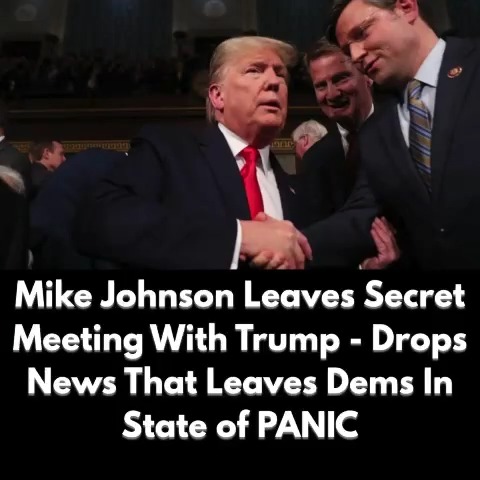
Trump Calls for End to Cashless Bail as Cornerstone of GOP Crime Bill
Former President Donald Trump is intensifying his push for a sweeping Republican-led crime package, calling for the complete elimination of cashless bail. In an interview with
The Daily Signal, Trump blamed what he described as “soft-on-crime” Democratic policies for the nation’s surge in violent offenses, singling out bail reform laws that allow suspects to be released without posting bond.
Trump labeled such policies a “disaster,” arguing that they empower repeat offenders to commit new crimes while awaiting trial. “We have to end this insanity,” he said, framing the issue as central to restoring law and order nationwide.
A “Comprehensive Crime Bill” in the Works
Trump confirmed that he is working closely with House Speaker Mike Johnson and Senate Majority Leader John Thune on what he calls a
“Comprehensive Crime Bill.” The legislation, he said, will aim to roll back a host of Democratic criminal justice measures that Republicans believe have undermined public safety in recent years.
Planning for the proposal began earlier this summer. According to reports,
Justice Department officials have already held preliminary meetings with Republican staffers to shape the bill’s framework. While details remain under wraps, sources familiar with the discussions say it could include stricter sentencing guidelines, increased federal support for local law enforcement, and limitations on early-release programs.
Trump has long made law and order a defining theme of his political platform. From his first presidential campaign to his current bid for re-election, he has repeatedly criticized Democratic-led cities for what he portrays as rampant lawlessness and failed progressive governance.
Federalizing D.C. Police: A “Model for Success”
Pointing to his recent actions in Washington, D.C., Trump touted what he described as a successful federal intervention in the capital’s law enforcement operations. He referenced his
30-day federalization of the Metropolitan Police Department, calling it a “major victory” in the fight against violent crime.
According to Trump, violent crime in the city has fallen sharply since the intervention began, transforming what he characterized as a once-dangerous capital into a “safe city.” “The results speak for themselves,” he said, crediting the temporary federal control for restoring public confidence and order.
Trump also lashed out at former D.C. Attorney General Brian Schwalb, who has filed a lawsuit challenging the legality of Trump’s decision to deploy the National Guard and assume direct control over local policing. Trump accused Schwalb and other critics of wanting to return the city “to chaos,” insisting that his policies produced “record-low crime rates” during the federal oversight period.
Looking Ahead: Possible Extension or National Emergency
With the 30-day order set to expire on September 10, Trump hinted that he may seek to extend the measure—or even declare a
national emergency—if Congress does not act on his proposed reforms.
“The results have been too good to ignore,” Trump said, adding that he believes his initiatives have laid the groundwork for lasting improvements in public safety. “If Congress fails to do its job, I’ll do whatever it takes to keep Americans safe.”
As the GOP prepares to advance its crime bill, Trump’s stance underscores a broader Republican effort to reclaim the political advantage on public safety—an issue that continues to resonate deeply with voters heading into the next election cycle.
For Trump, the message is clear: restoring order, ending cashless bail, and holding criminals accountable are not just legislative goals—they are central to his vision of America’s future.